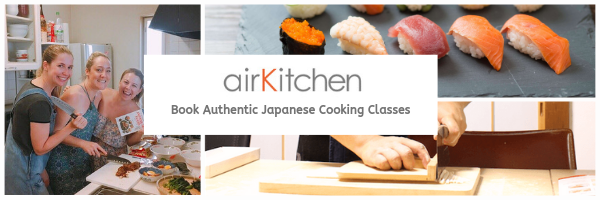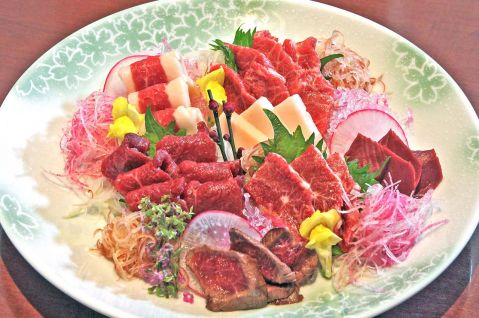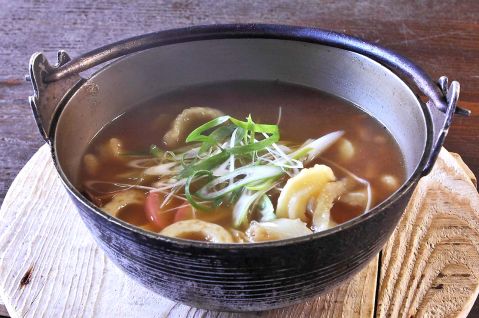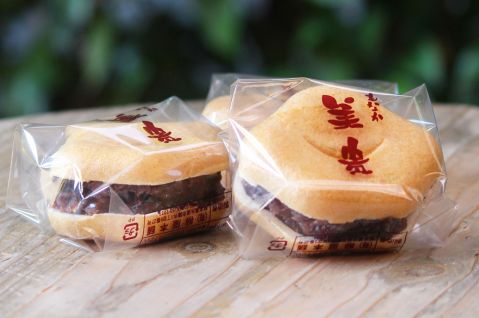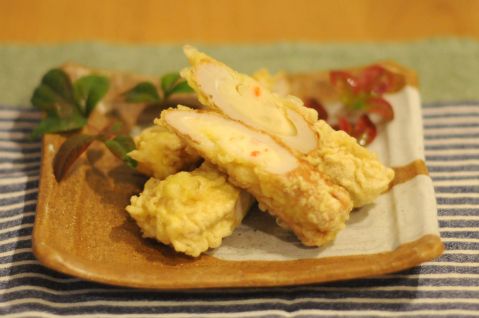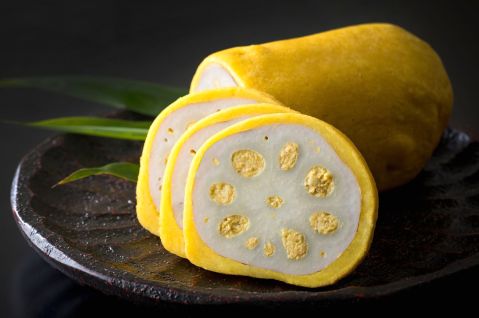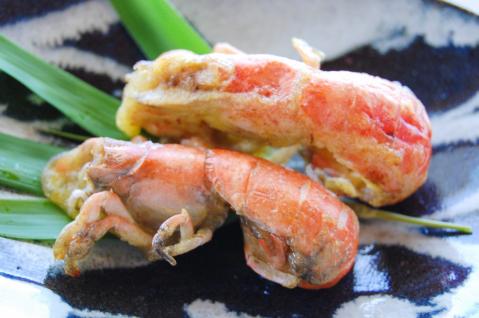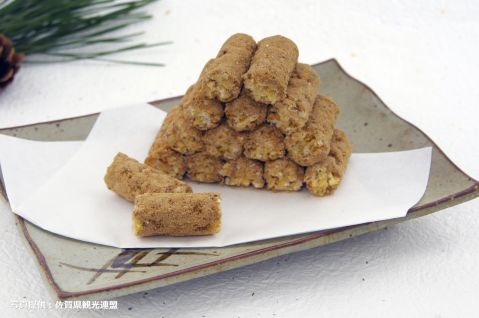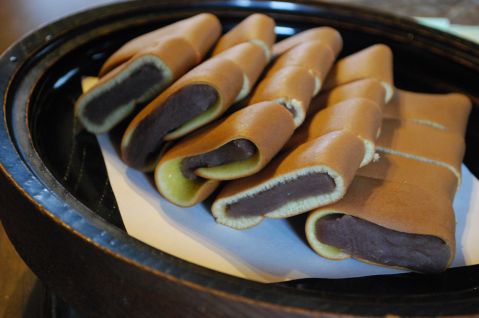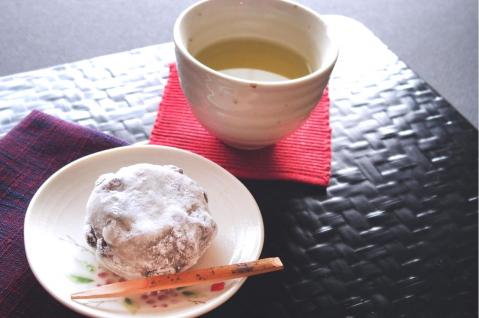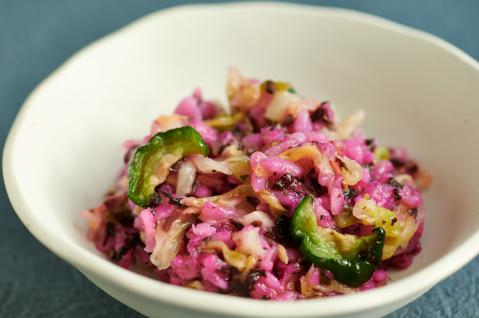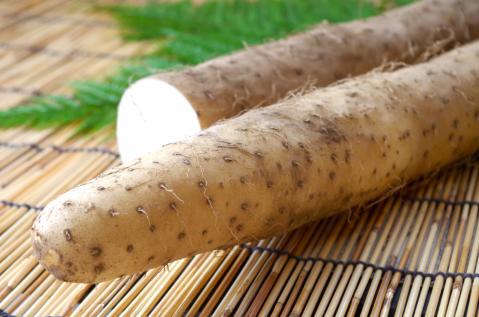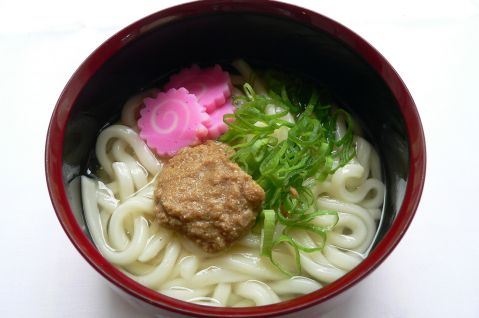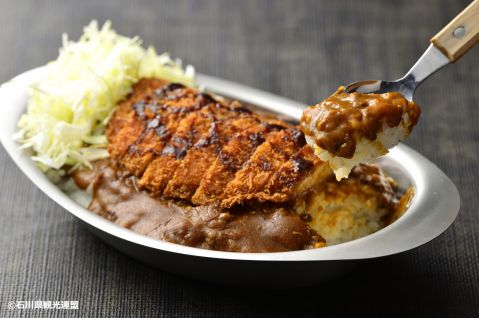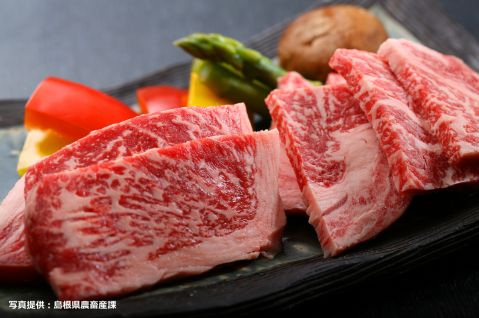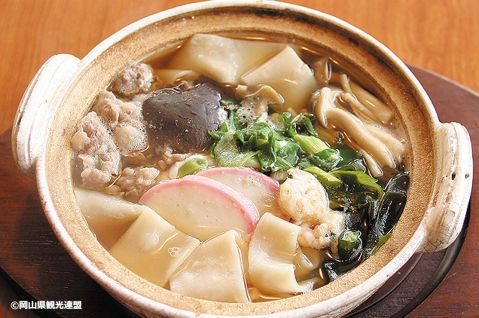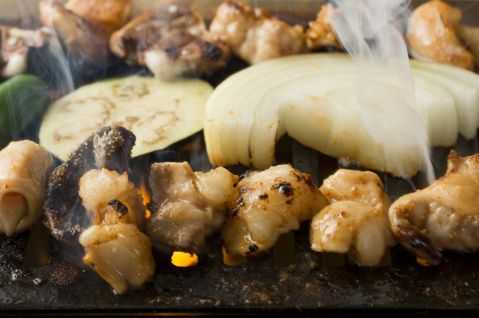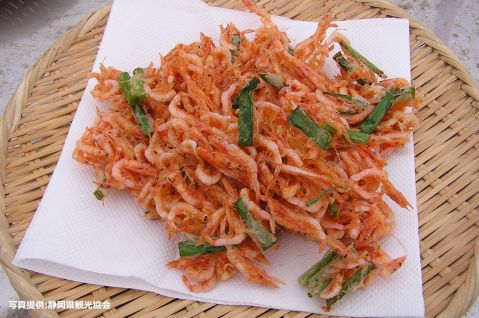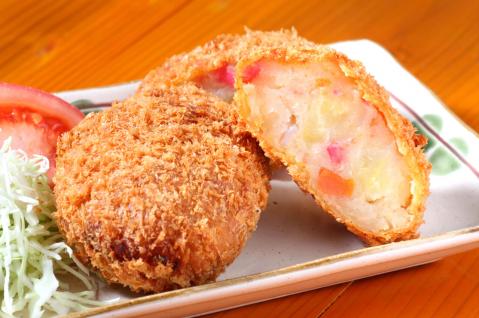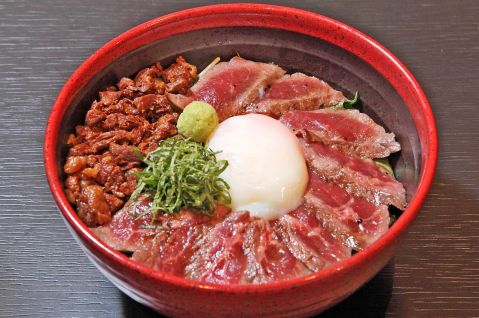Makigaki (Rolled Dried Persimmons)
A traditional delicacy born from the harsh nature of Yabakei
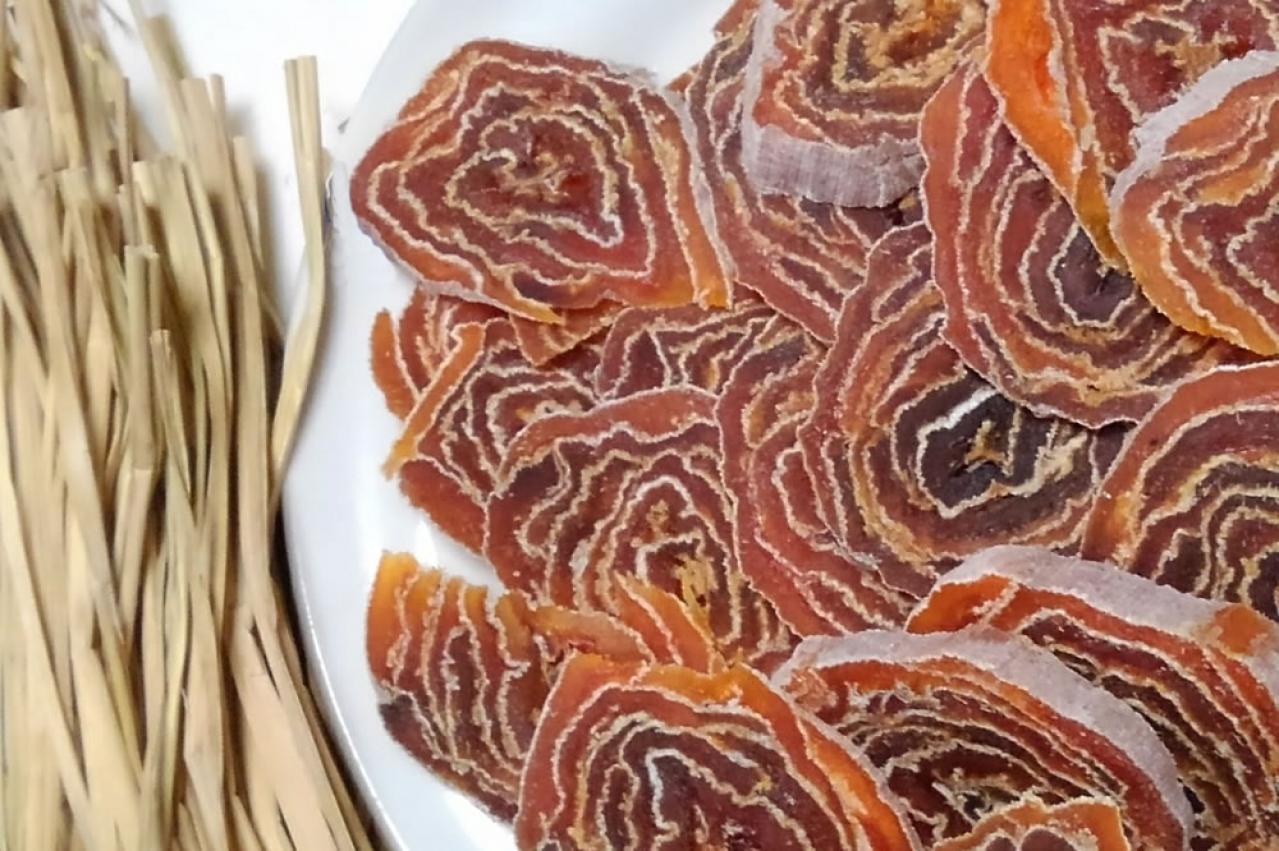
About Makigaki (Rolled Dried Persimmons)
Makigaki (巻柿) is a traditional food from the Ushiro region of Yabe-machi in Kamimashiki County, an area famous for its production of dried persimmons. This delicacy carries the auspicious meaning of "bringing in good fortune" and is a popular gift during year-end celebrations and a lucky charm for the New Year. The sight of making Makigaki is a signature scene in local December news.
The dried persimmons are made from a local specialty astringent persimmon called "Nayaboshi" (投烏帽子). During the drying process, the fruits are hand-massaged about three times to shape them properly. Once a fine white powder of natural fructose forms on the surface, they’re ready. For Makigaki, the stems and tips of the dried persimmons are trimmed, then scored lengthwise and opened to remove the seeds carefully. Ten or so persimmons (depending on their size) are stacked into a rugby ball-like shape, wrapped tightly in bamboo leaves, and bound firmly with straw ropes. When sliced, the glistening amber layers of dried persimmon and the thin coat of white powder create a floral pattern resembling a rose, indicating a perfect Makigaki. Its distinct rich flavor and the natural sweetness of dried persimmon resemble that of a luxurious Japanese confection.
Producing Makigaki begins around July, as preparations like gathering fresh bamboo leaves and knitting straw take time until the persimmons are ready. As the year approaches its end, the final steps are completed. While the wrapping in bamboo leaves remains consistent among producers, the binding with straw or other materials reflects their individual techniques and innovations.
Although it was once common to see persimmons hung to dry under the eaves of homes, the number of Makigaki producers is decreasing year by year.
Reviews
There are no reviews yet.
